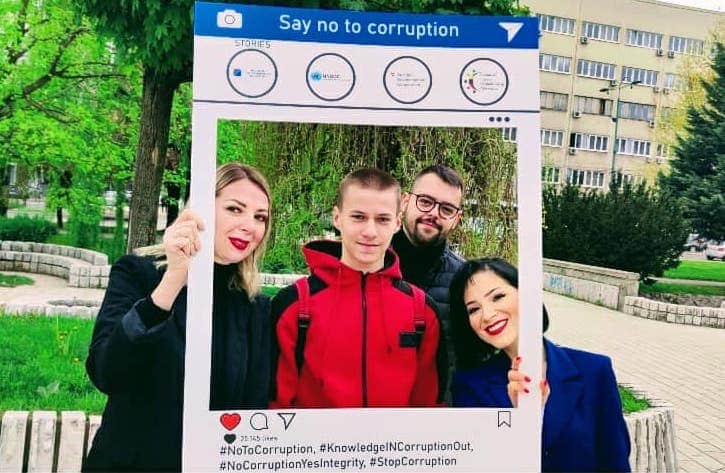Students who didn’t pass their entrance exams for the University of Sarajevo were enrolled anyway because “their parents knew someone” or they paid off the right person: “With money you can do anything.”
During a private meeting with a professor, a student was told he definitely would pass an important exam if he bought the professor’s book for €40. “I think everyone at the university knows about this practice. Whoever I talked to, almost everyone said they bought it.”
A man who applied for a faculty position was passed over for an applicant who had lower grades. “My agony is still going on because I took everything to court. It’s been going on for a long time and it’s exhausting. My colleagues and I are not the only ones, but it would be good if we were the last.”
These are three of the more than 50 complaints sent by students and staffers to the Center for the Development of Youth Activism (CROA). CROA is taking an old-school approach to ensure these are the last victims of Bosnia and Herzegovina’s corruption-plagued university system.
Students, faculty – anyone, for that matter – can drop their concerns and complaints in plain boxes that CROA maintains at the University of Sarajevo and the University of East Sarajevo. Several years into their campaign – “Knowledge IN, Corruption OUT” – CROA is so well known that the group doesn’t even need to put its logo on the boxes.
“Students use the boxes, but the boxes are also a reminder. They know what it’s for,” said Alma Fejzić, a lawyer and project coordinator at CROA. “Many people see the boxes and then send their complaints by mail or email, because they don’t want to be seen on campus.”
Fejzić, who herself studied at the University of Sarajevo, said corruption there is an open secret. “When I was studying I saw some cases, but I was not a victim. I wasn’t pressured to buy books from professors or give money to pass exams. But I certainly heard about problems.”
CROA’s efforts have gotten the universities’ attention, says Fejzić, and administrators have begun to hold meetings with the group. “They want to cooperate with us. This is a big step for us,” she said. “They know they have a problem.”
CROA not only is passing on some of the anonymous complaints to universities for follow-up investigation, the group also is planning anti-corruption training for professors, staff and students. It hosts “anti-corruption cafes,” produces awareness-raising videos, and provides no-cost legal assistance for students in their appeals against unfair university decisions. The group also is working to include conflict of interest in the universities’ codes of ethics. These efforts are part of the group’s broader initiative, “Youth Against Corruption: Don’t be the Weakest Link.”
Fejzić says CROA is trying to break through the attitude of resignation that permeates not only Bosnian society but the entire Western Balkan region. “Corruption is a big problem in every area of life. It is a common problem. Our people know about the problems but think they cannot fix them. They are depressed when we speak about it.”
Surveys by CROA and other groups starkly document the problems. A survey of 2,000 university students and 500 employees found every fourth student has had an encounter with corruption, such as paying for a better grade. In addition to bribes and coerced textbook purchases, some students are pressured to join certain political parties and extorted for a private phone numbers and sexual favors, according to CROA.
“Fixing corruption has to happen in small steps,” said Fejzić, who chose non-profit work over practicing law. “I think I can give much more to my society at an NGO than as a lawyer in court. NGOs can do much more for my country and my society. Many of us want to stay in Bosnia and build our lives here.”
